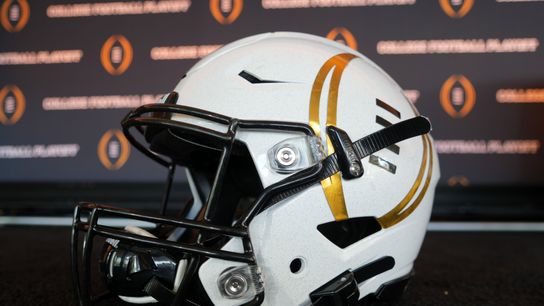After its regular season was cut from a standard 162 games to 60, Major League Baseball responded by expanding its playoff field from 10 teams to 16. Since teams were denied opportunities to prove their worth over the course of a normal season, the league responded by inviting more to the postseason.
This makes sense, both logical and financial. The NHL and NBA made similar moves after their own seasons were cut short due to the coronavirus.
College football leaders did not follow such logic. A proposal by Pac-12 commissioner Larry Scott to temporarily expand the CFP field from four teams to eight was denied by the College Football Playoff's management committee.
"They decided that doing that now would be such a significant change, and come with so many challenges, especially given the timing with the season already underway, that they concluded that the best outcome would be to make no changes in the format," CFP executive director Bill Hancock told ESPN on Wednesday. "They will continue to discuss the future, which is just good, responsible business practice, although I must say that dealing with COVID has become everyone's focus now."
College football's already inequitable set-up was taken to the extreme this season. All five Power 5 conferences are playing differing number of games, beginning at differing times. The Pac-12 will be the last to join the dance, and already faces the steepest climb to reach the 4-team field in a normal year, evidenced by the fact the Left Coast has placed just one team in the field since 2015.
So it's no surprise the Pac-12 argued the field should be expanded this season.
“Well, I’ll say the easy answer is the one thing that’s not gonna happen, which is expand the playoff,” Stanford head coach David Shaw said Wednesday. “Whether it’s six or eight (teams), at some point in time, it’s going to happen. We all know it. We all believe it. We’re just going to do it very, very slowly and methodically. But it’s the only thing that makes sense. It’s the only thing that actually seems fair and equitable."
The Pac-12's argument certainly comes out of a place of self-interest, that can't be denied.
What also can't be denied: they're right.
Student-athletes should be given every chance to compete as many times as possible given all they've been through this year. The NCAA agreed, dropping any pretense of bowl eligibility requirements for this season. The CFP apparently decided COVID was too high a hurdle to clear.
Temporarily expanding the field also would've made financial sense, at a time when injections of cash are needed like a dying man needs a blood transplant. ESPN pays $470 million a year to air the three CFP games. An extra round, four more games, would have been worth... what? $200 million extra? More? Less?
Even pennies-on-the-dollar rates would help in a year where everyone's wallets are light. And when combined with the chance to bring equitability and reward to a situation that could use more of both, it's puzzling to see why the CFP didn't adapt to these unprecedented times.
